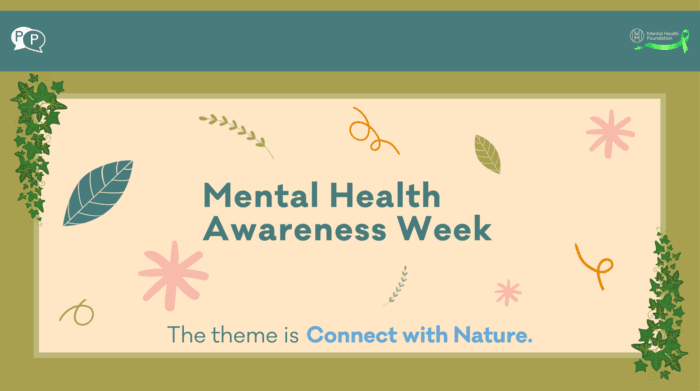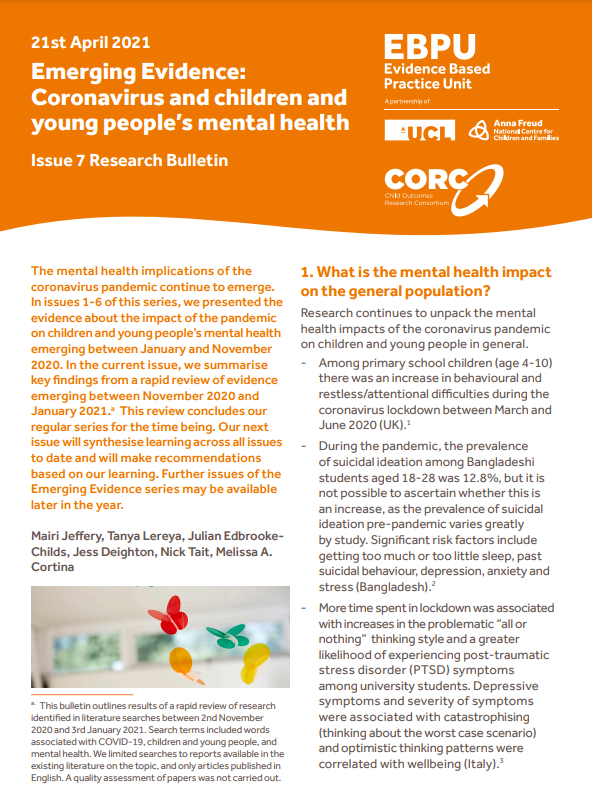Published on: May 11, 2021
‘The Big Ask’
Dame Rachel de Souza, Children’s Commissioner for England, has launched ‘The Big Ask’, the biggest consultation with children ever undertaken in this country. The survey will run from 19th April to 19th May and asks children aged 4-17 to set out their priorities for improving childhood post-Covid. ‘The Big Ask’ survey will be made available to every school in England with downloadable resources to use, for example during primary assemblies and secondary form sessions, to encourage children and young people to take part in the survey.
Please share the survey with all children, young people, families and carers to make sure the voices of children and young people everywhere are heard.
Mental Health Awareness Week 10th to 16th May
Mental Health Awareness Week will run from 10-16th May 2021, with this year’s theme focussing on ‘Nature’. The Mental Health Foundation’s research on the mental health impacts of the pandemic showed that:
- Going for walks outside was one of our top coping strategies
- 45% of people reported being in green spaces had been vital to their mental health.
You can download the Mental Health Foundation’s school pack for FREE. This provides materials and resources to help pupils connect with nature in a meaningful way.

This Mental Health Awareness week encourages children, young people, families and carers to connect with ‘Nature’. Show your support by sharing stories and pictures on social media. #ConnectWithNature
Primary schools can also check out our ‘Wellbeing Wake-Up’ sessions on YouTube. Use these during Mental Health Awareness Week to help connect with ‘Nature’ in a fun way.
Emerging Evidence
The Emerging Evidence series is a collaboration between the Evidence Based Practice Unit (EBPU) and the Child Outcome Research Consortium (CORC). They have searched around the world for evidence published during the pandemic, to help answer three questions:
- What are the key mental health challenges for children and young people during the coronavirus pandemic?
- What are the key mental health challenges for disproportionately affected groups?
- What might help children and young people to manage these challenges?
Issue 7 references the results of an online survey of patients with anorexia nervosa. The results show that 70% of respondents reported eating, shape and weight concerns, drive for physical activity, loneliness, sadness, and inner restlessness increased during the pandemic.

The findings help us to reflect what children and young people with a pre-existing mental health problem will have experienced during the pandemic. The sudden change to normal routines, support structures and mechanisms has resulted in so many people feeling a loss of control and isolation.
When working with children and young people remember this research to help gain understanding of each person’s lived experience and how to best support them to gain the support they need to rebuild that sense of control.
Issue 7 is the final issue of Emerging Evidence series in its current format. You can find the full series here.

